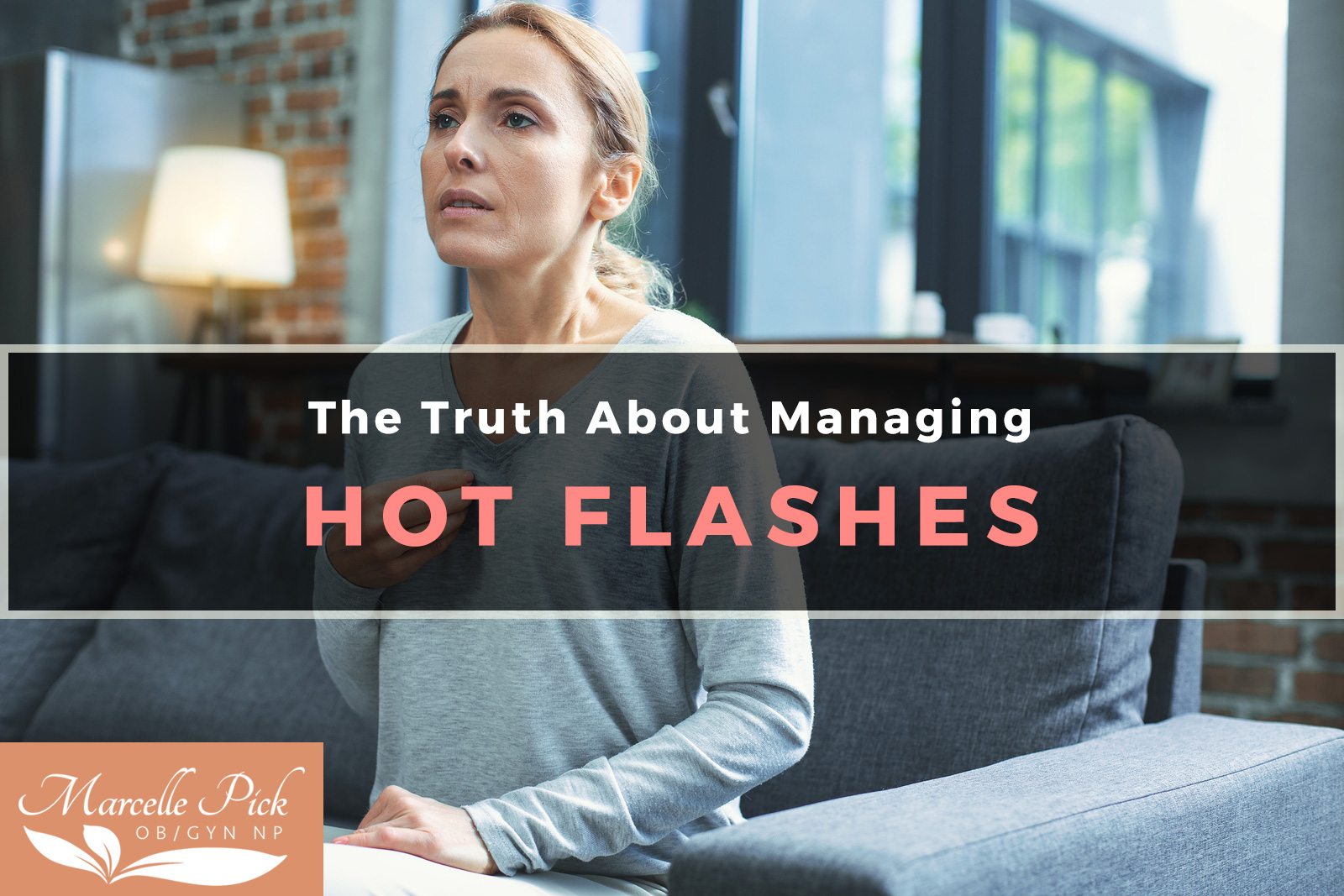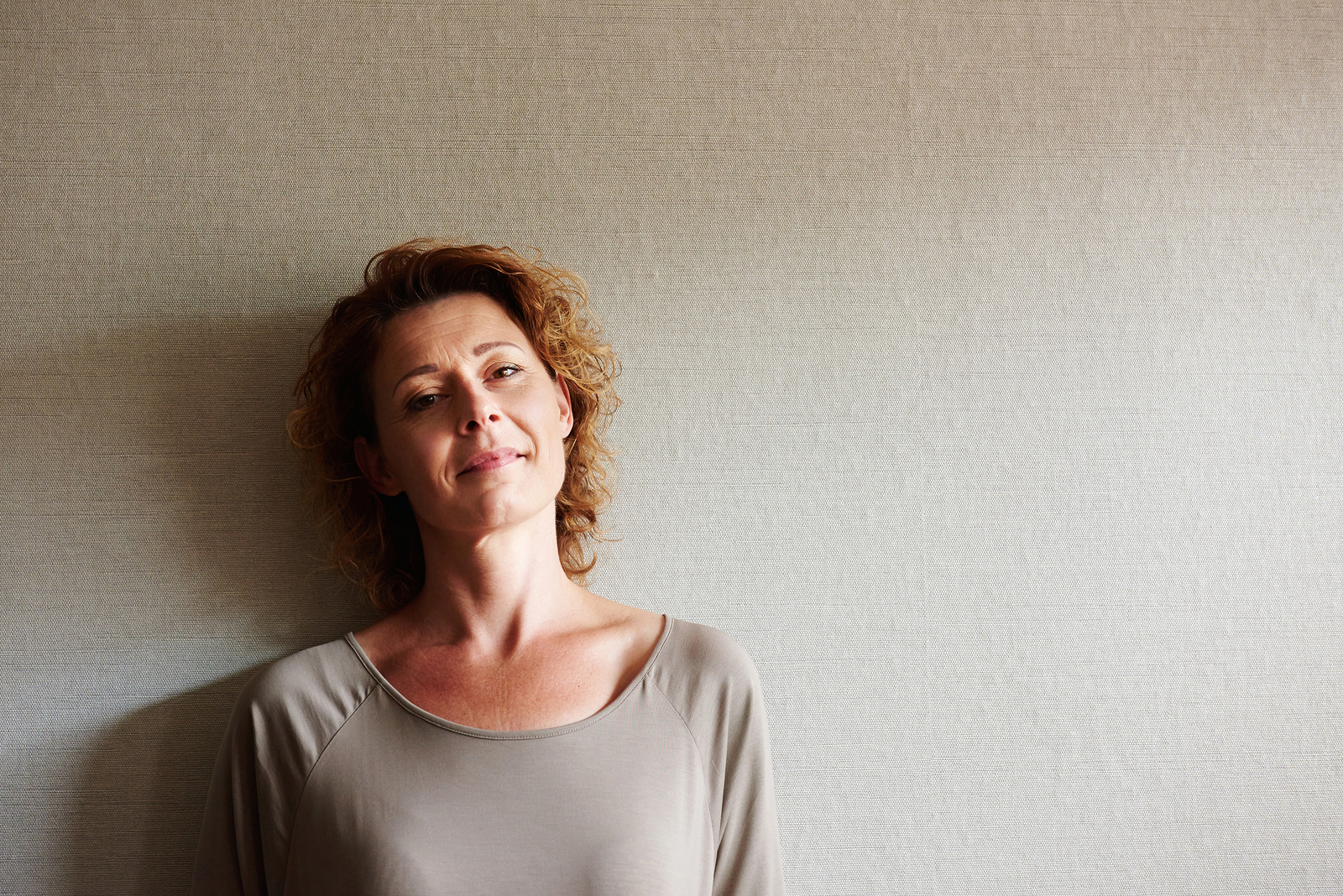What is perimenopause?
Perimenopause, or premenopause, is a term coined in the last twenty years by the medical community to describe symptoms caused by normal hormonal fluctuations that occur as a woman moves closer to her menopause. These perimenopause symptoms can be broad-ranging, and they differ for every woman, causing a lot of confusion and anxiety. And the younger you are when it begins, the more confused and worried you may be.
Perimenopause symptoms are extremely individualized, but the most common physical symptoms include:
- Irregular and/or heavy bleeding
- Insomnia
- Night sweats and/or hot flashes
- Worsening PMS, migraines
- Vaginal dryness
- Abdominal weight gain
On the emotional front, changing hormones are linked to increased bouts of anxiety, depression, irritability, and intense mood swings. Many women have experienced chest pain or palpitations from their hormonal imbalance. What’s more, the pendulum can swing wildly between different symptoms, making it hard to describe and diagnose (which often leads to a lot of frustrating doctor visits).
It’s also true that not every woman experiences symptoms (about 40%). I have had patients who breezed through years of transition with barely a sleepless night and those who only felt mildly uncomfortable. I’ve also had patients who began feeling their first symptoms in their late 30’s or early 40’s but ignored them because they believed themselves to be too young to consider menopause.
A woman may go in and out of a perimenopausal state for as many as 10-13 years before she arrives at true menopause (the average age of which is 52 in the US). This means that it is perfectly normal, in fact natural, for a woman as young as 40 to begin feeling foreign and seemingly inexplicable changes in her body and emotions.
The important thing is to recognize that symptoms, at any age, are the body’s way of telling you that it is not getting the support it needs. Because each woman faces different demands, each will experience her own retinue of hormonally driven symptoms, which may ebb and flow depending on a host of other important factors, such as adrenal fatigue, serotonin depletion and nutritional deficiencies.
All of your inner systems are connected, and the way that they communicate is with hormones. If you are not supporting your hormones through optimal nutrition, detox, good lifestyle habits and emotional release, your systems will begin to break down. This leads to symptoms. Nature intended us to go through hormonal transitions, but it is not natural or necessary to suffer with unbearable, or even just uncomfortable, health concerns.
From my decades of medical practice I know that no woman needs to put up with the bothersome perimenopause symptoms at any age, be it 30, 40 50, or 60. For many of my patients, all it takes is the addition of a daily supplement, some simple dietary and lifestyle changes and USP progesterone cream for their bodies to return to homeostasis. Many women find that their periods stabilize, regular sleep patterns and their libido return, and their energy and joy rebounds.
Even those women who have been diagnosed with premature ovarian failure should not necessarily despair. I have seen a number of younger women who, with the right support and attention, go on to experience a recurrence of regular ovarian function, even a pregnancy. Conventional medicine puts a lot of stock into blood tests (and, admittedly I do too) but it is always good to remember that perimenopause is a volatile time and numbers are not necessarily your destiny—nor is family history. This is the main reason we don’t recommend over-the-counter FSH/menopause tests.
Wherever you are on your journey through perimenopause, you may be feeling a lot of anxiety—even depression—at the prospect of menopause. Our youth-centric culture has slotted menopause as a kind of ghoulish finish line—the end of youth and fertility—to be avoided or cured at any cost. And the younger you are, the more susceptible to this image you may be.
I looked at some statistics recently and saw that that 1 in 1,000 women will experience premature menopause at age 30, 1 in 100 by age 40. In my clinical experience, these numbers are actually a little higher, which has given me pause. Is it that my patient population is more hormonally sensitive, or perhaps is the stressful nature of modern life taking its toll on our primitive endocrinology? Either way, the trend toward a younger menopause means women are struggling earlier to come to grips with their feelings about themselves and growing older.
It may be reassuring to remember that a woman’s body is always in flux, always changing, and never more so than in the years that characterize puberty and menopause. In the same way you can be “prepubescent” you can also be “perimenopausal.” Both those words are just that, words—helpful in some ways, but certainly not a definition of who you are, what your body is capable of or who you are going to be.
This is why a holistic, combination approach to perimenopause makes so much sense. If you begin to pay attention to your whole health picture—what your body, mind and spirit each need at the core level—you will be amazed to discover how well-equipped you are to meet those demands (with a little help). From there, you may discover another secret—that the joys of menopause are manifold and the best is yet to come.
If you have ever asked,” what is perimenopause?” and think you may be in perimenopause, I encourage you to learn as much as you can about your health and begin to get informed about this important time in your life. There is even more incentive to learn if you are feeling uncomfortable with the messages your body is sending you during the hormonal change.
For more information on this important topic, please read our many informative articles in our PMS and Menopause and Perimenopause sections.







